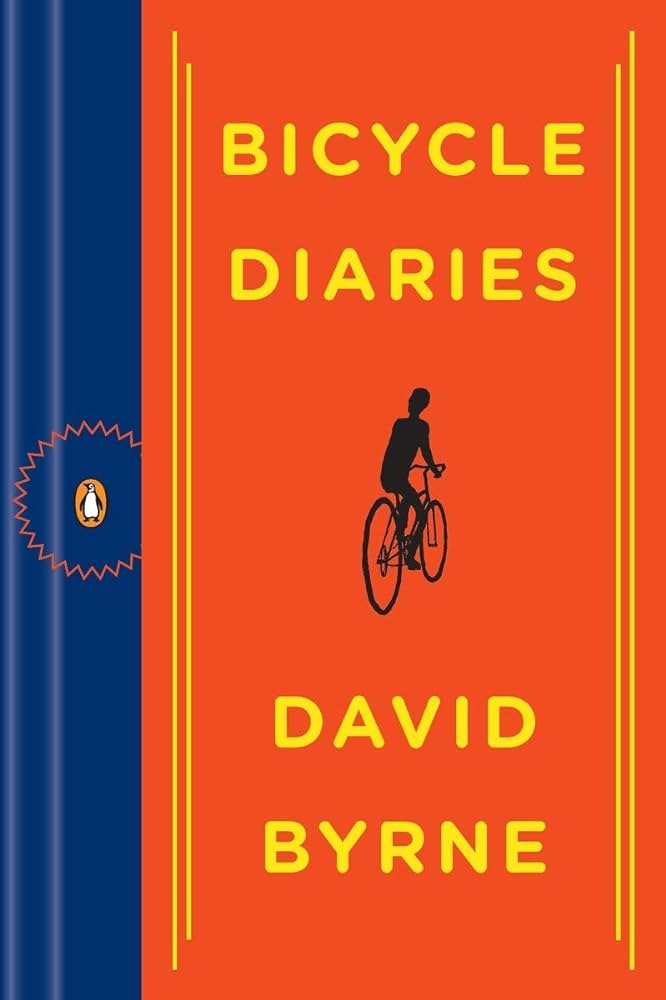Bicycle Diaries is a travelogue of sorts by David Byrne, frontman of the band Talking Heads. Aside from being a fan of his music, I got this book for the early chapter discussing Pittsburgh’s cycling infrastructure. Although things here have changed a lot since the book was first published in 2009, that chapter was pretty good, including discussions with local stakeholders.
To be honest, I wish Byrne would have stuck with that format for more of the chapters, each one set in a different city around the world. Instead, large portions of the book didn’t have much at all to do with bikes. Some chapters were heavy on regional history, while others featured more exploration and sightseeing, and others focused on Byrne’s art, music, or theater projects. I didn’t mind so much the discussions of history, even when they didn’t have to do with bike infrastructure. Some talk of his creative projects was welcome and expected — those projects are the reason he is globe-trotting, after all. But the parts when he was just exploring and commenting on different cities sometimes felt more than a little judgmental. Occasionally, Byrne’s comments were shockingly crass, like when he accidentally ended up in a “whorehouse” (his word) in Manila and decided to include a photo in the book showing the faces of seventeen young sex workers. What, exactly, was the point of that, beyond degradation and objectification?
There were a few other moments when I couldn’t help but think, This guy is a real asshole. The way Byrne recounted conversations with his friends and acquaintances often made me uncomfortable. Occasionally there would be an interaction where it was clear someone was annoying him or said something he didn’t like. For example, he ends up at a karaoke bar, where someone chooses “Burning Down the House,” obviously hoping Byrne will join in singing his most popular song. He doesn’t want to, which is fine, but goes on to insult by name the person who performs — a friend of his friend — saying “it seems my phrasing on that song was a little tricky.” Really, why did that slight need to be included?
I remember this book getting favorable press when it came out, and somehow I just don’t think it would be received the same way today, fifteen years later. The world has changed for the better: Pittsburgh is getting more bike lanes all the time, and celebrities like David Byrne are much less likely to get a pass for bad behavior. For me, the author is such an unapologetic asshole that the good parts of this book are not nearly enough for me to recommend it to anyone.
